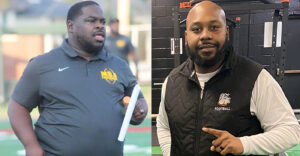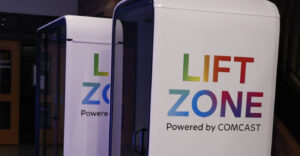Now the defense gets its turn.
After 17 days of testimony featuring some 37 witnesses, dozens of wiretapped phone calls and secretly recorded videos, prosecutors rested their case Wednesday in the “ComEd Four” bribery trial over allegations that the utility tried to bribe then-House Speaker Michael Madigan.
Ex-ComEd CEO Anne Pramaggiore informed the court she plans to take the witness stand herself, testimony that could begin Wednesday. The other three defendants told the judge they still are considering that decision for themselves.
At least one former colleague of Pramaggiore also is expected to testify about her character and business acumen.
Pramaggiore’s case will be followed by defendants Jay Doherty, a ComEd lobbyist and former head of the City Club of Chicago, and John Hooker, a lobbyist and former executive for the company.
The last defendant to present a case will be Michael McClain, a longtime confidant of Madigan’s who worked for years as a ComEd contract lobbyist and consultant.
The indictment alleged the four defendants steered $1.3 million in payments from ComEd to Madigan-approved subcontractors who did little or no work in a bid to win the speaker’s influence over the utility’s legislative agenda in Springfield.
[ ‘ComEd Four’ bribery trial: What you need to know ]
The indictment also alleged the defendants schemed to hire a clout-heavy law firm run by political operative Victor Reyes and stack the utility’s summer internship program with candidates sent from the 13th Ward.
The four on trial have all pleaded not guilty. Their lawyers have contended the government is trying to turn legal lobbying and job recommendations into a crime.
Madigan and McClain face a separate racketeering indictment that is set for trial next year.
The last major witness to testify for prosecutors was Edward Moody, a legendary precinct captain for Madigan’s vaunted 13th Ward operation, who told jurors on Tuesday the powerful Democratic speaker got him a $45,000-a-year contract with one of ComEd’s top lobbyists but made it clear the deal would disappear if he stopped working on campaigns.
Moody, for years one of Madigan’s top door-knockers, recounted without hesitation Madigan’s warning when he told Moody about the arrangement: “I control that contract and if you stop doing political work, you’ll lose that contract.”
That message was reinforced when Moody met with McClain at Huck Finn Restaurant on the Southwest Side. Moody testified McClain told him the contract was “a hell of a plum and that I owe the speaker big.”
[ ‘ComEd Four’ trial: Evidence seen and heard by the jury ]
Under the deal arranged by the speaker, Moody testified, he spent the next seven years collecting monthly checks from ComEd, funneled through a series of Madigan’s associates, mostly for doing nothing.
Moody also said he sought Madigan’s blessing for two public offices — county commissioner and as recorder of deeds — because “politically, he would be the boss” and had the power to “put a brick” on any potential appointment.
Moody’s testimony, which came near the end of the prosecution’s case in chief, was crucial because he’s the only one of the Madigan-approved “subcontractors” allegedly paid by ComEd to cooperate with the government.
On cross-examination, defense attorneys attempted to paint Moody as an opportunist who told investigators what they wanted to hear because he was scared that he was going to be charged himself.
Moody said he received an immunity letter from prosecutors in exchange for his testimony, meaning if he “simply tells the truth” the evidence can’t be used against him.
Defense attorney Patrick Cotter, who represents McClain, tried to push Moody about why he didn’t tell prosecutors in all his debriefings about 200 hours of canvassing he did in Chicago Ridge and other southwest suburbs to see what homeowners thought of ComEd’s new smart grid program.
“Was it intentional, sir?” Cotter asked.
“No,” Moody replied.
Afternoon Briefing
Daily
Chicago Tribune editors’ top story picks, delivered to your inbox each afternoon.
Moody said he told prosecutors about the canvassing assignment but didn’t recall the amount of time he’d actually spent going door to door for McClain because he spends so much time knocking on doors for campaigns.
Moody’s emergence as a government cooperator sent shock waves throughout Democratic circles, from Madigan’s base of power on Chicago’s Southwest Side to the insiders hanging out in the Illinois Capitol’s rotunda.
Among the other key witnesses for prosecutors was Will Cousineau, a lobbyist who was Madigan’s political point man in the speaker’s office. Cousineau testified that Madigan had him twist arms on the House floor and deliver the votes that got ComEd’s massive Future Energy Jobs Act over the hump.
Jurors also heard from Fidel Marquez, a former senior vice president at ComEd who secretly cooperated with investigators and made a series of video recordings of meetings with the defendants talking about the alleged payment scheme.
But by far the star of the prosecution’s case was the wiretapped recordings in which the defendants — and Madigan himself — spoke in their own words when they thought no one was listening.
“We had to hire these guys because Mike Madigan came to us,” McClain told Hooker on one call played for the jury last week. “That’s how simple it is. So if you want to make a federal court suit over it, OK. But that’s how simple it is.”
jmeisner@chicagotribune.com







